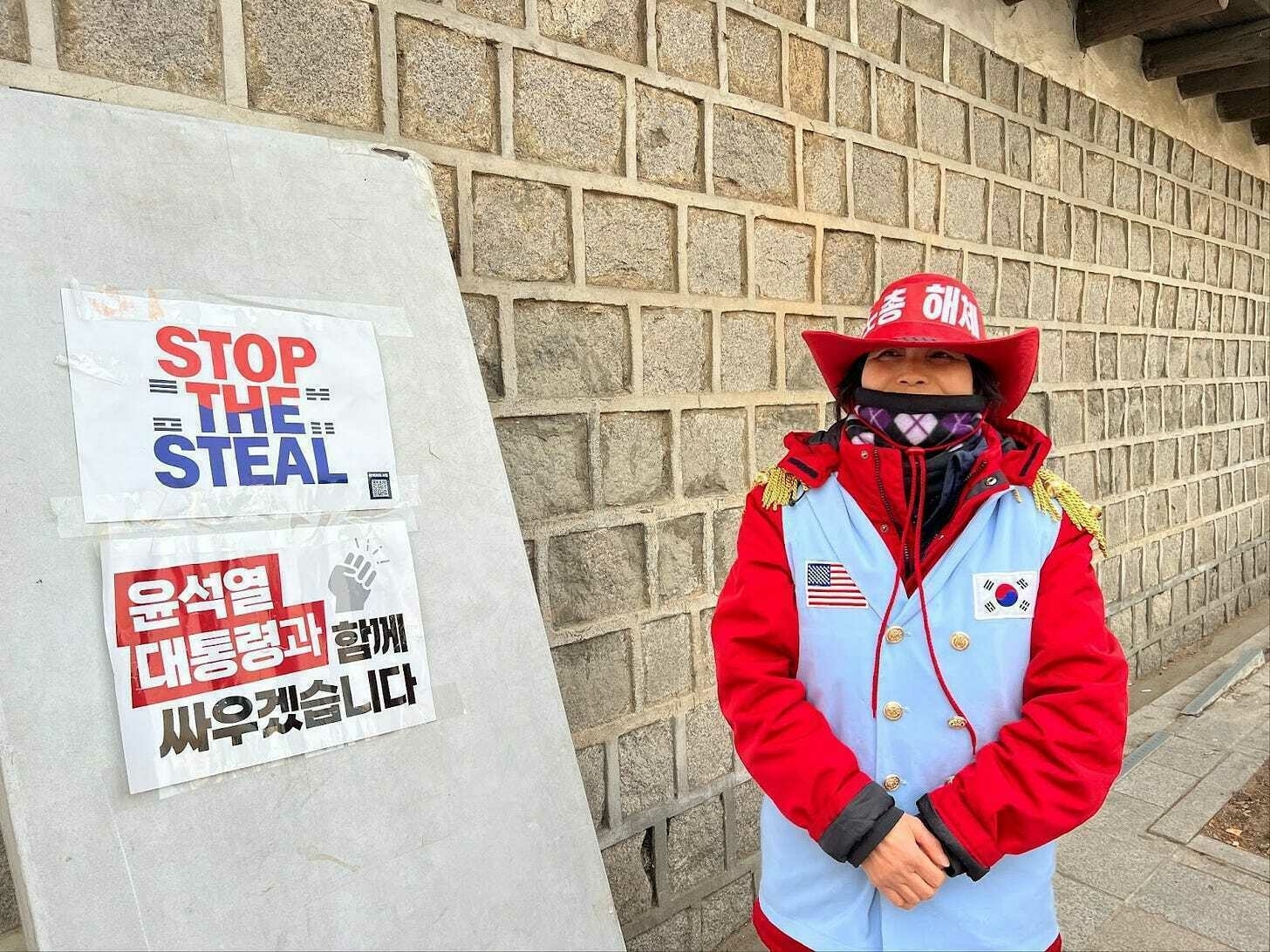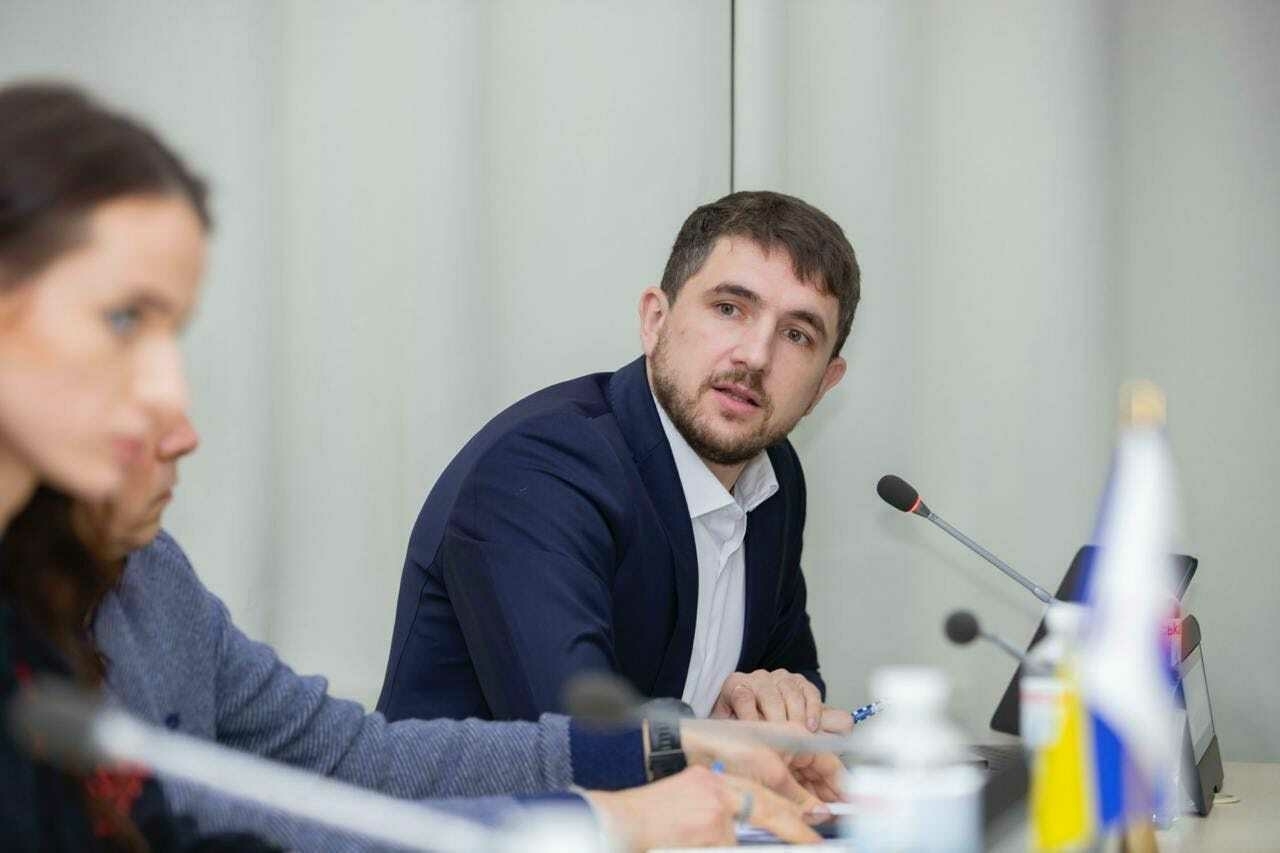Editor’s Note:
We’re in the thick of our second anniversary subscriber drive.
Would you miss our coverage if we disappeared? If so, upgrade now to make sure we don’t disappear. We need your help to keep reporting on this terrible war.
Paid subscribers get access to all our reporting, not to mention our coming live editorial meeting, where you get to go behind the scenes as we brainstorm our reporting agenda!
SEOUL, South Korea – “Unless these two are smiling and happy to go back to North Korea or Russia, we Koreans would not be happy [for them to be exchanged],” the retired military officer told me. “You better tell them. You can quote me.”
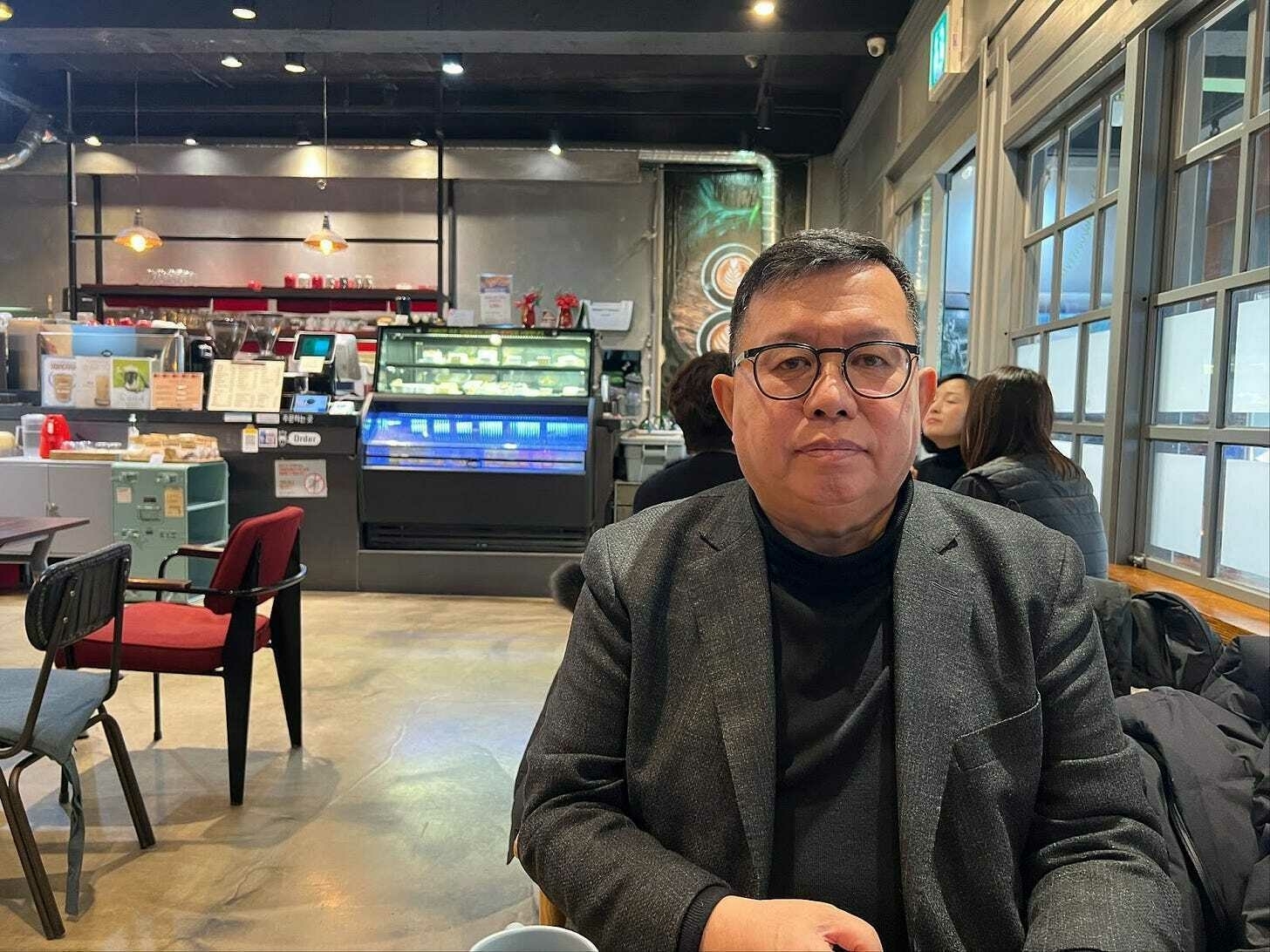
Chun In-bum is a retired South Korean Army Lieutenant General who has fiercely advocated for his country to help Ukraine’s efforts against Russia’s invasion. Since the invasion, Chun, 66, has been pushing for items such as anti-aircraft missiles and mine-clearing devices to be sent to the frontlines.
Yet his support for Ukraine may be dramatically affected if President Volodymyr Zelenskyy decides to exchange with Russia the two North Korean prisoners captured by Ukrainian forces in January. Zelenskyy has suggested he’s ready to make the exchange.
“That I would think is a war crime,” Chun, who previously served as the lieutenant general of South Korea’s Special Warfare Command, told The Counteroffensive. “They go back to the Russians, they [are] dead men. If Zelenskyy does that, he's gonna lose half of my support. And a lot of the South Koreans will do that as well.”
Ukraine is between a rock and a hard place. On one hand, it is trying to defend itself from Russia’s army, which includes about 14,000 North Korean soldiers that the Kim Jong-un government has sent since 2024.
On the other hand, if Kyiv uses the North Korean POWs as a bargaining chip, it risks alienating South Korea — a key partner that, despite the long-standing division, still views the people of North Korea as brothers. In December 2023, The Washington Post reported that Seoul indirectly provided more artillery shells for Ukraine than all of Europe combined.
This difficult geopolitical juggling act comes from an unexpected reality: many South Koreans express a surprising degree of empathy toward their northern neighbors. And adding to the complexity is the constitutional crisis that South Korea has been roiled by in recent months.
Kim Ki-euk, a 56-year-old housewife on the right end of the South Korean political spectrum, said she saw the North Korean POWs being tragically forced to fight by dictator Kim Jong-un. "They're victims, essentially," she said, referring to them as "frogs in an urn [who] don't know the outside world."
Zelenskyy said earlier this year there would “undoubtedly be more” North Korean soldiers captured. The Ukrainian president added he would be willing to exchange two captured North Korean soldiers to Pyongyang in exchange for Ukrainian prisoners of war in Russia.
It’s an option that lacks understanding of the affinity that South Koreans have for ordinary North Koreans.
“Bad move,” Chun said of Zelenskyy’s suggestion. “Let's say these two kids were exchanged to Russia, and they didn't want to go. Who's going to take responsibility for this hideous situation?”
Why do many S. Koreans feel sympathy for N. Korean POWs?
South Korea’s constitution says that “the territory of the Republic of Korea shall consist of the Korean peninsula and its adjacent islands,” meaning it legally considers people in North Korea citizens.
Seoul sees North Korea as a territory that is under an illegitimate government instead of recognizing it as a sovereign state. Under this position, many believe that South Korea has the legal obligation to protect people in North Korea, including defectors.
Seoul is facing a dilemma, explained Junghoon Lee, the dean and professor of International Relations at Yonsei University's Graduate School of International Studies.
“Are they North Korean enemy soldiers or prisoners of war, or can there be a different angle to approach them as South Korean citizens?” he said.
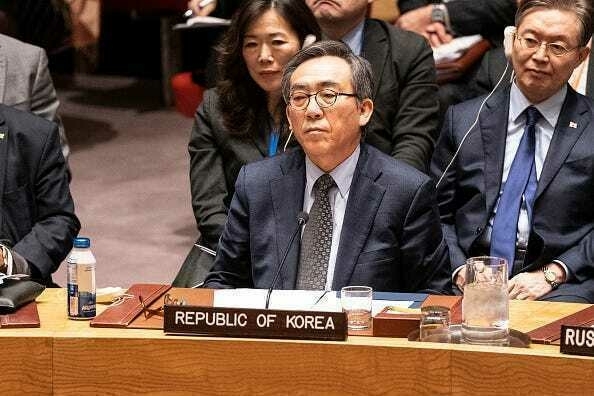
South Korea’s Foreign Minister Cho Tae-yul asked Ukraine earlier this year for cooperation in the handling of the North Korean prisoners, saying Seoul would accept all North Korean soldiers if they requested to move to South Korea.
“Technically, our constitution recognizes them as our citizens,” Chun said. “But are we going to fight for their repatriation to South Korea?”
Meanwhile, South Koreans are also facing turmoil at home. They will be heading to the polls on June 3 to vote for their country’s next president, who will replace the impeached leader Yoon Suk Yeol. Yoon was removed in December after trying to impose martial law. The events plunged South Koreans into political uncertainty and left a deeply divided society.
Amid the South Korean constitutional crisis —and the high-stakes U.S.-Ukraine negotiations — no decision has been made on exchanges.
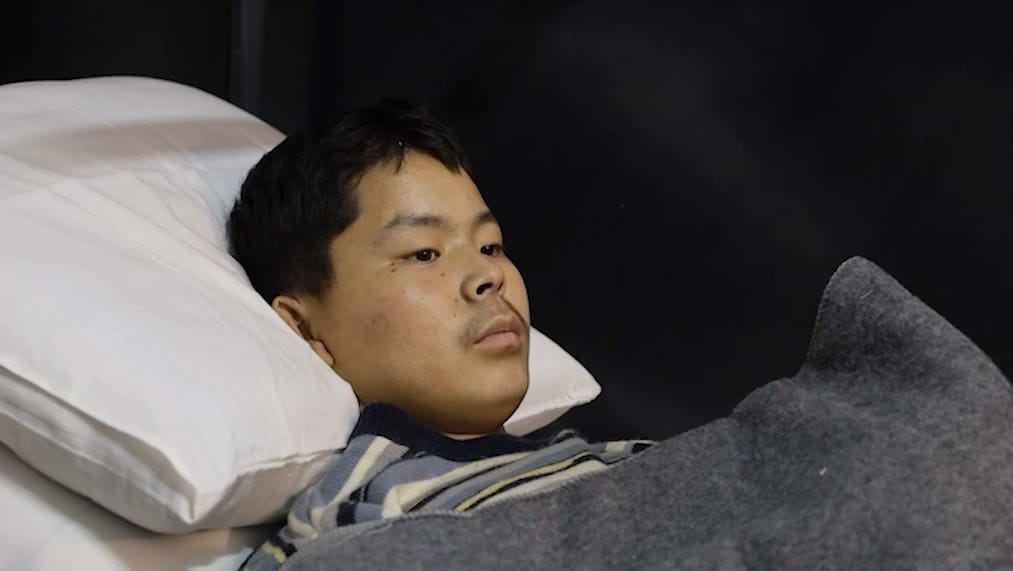
In January, President Zelenskyy published a video showing the two captured North Korean soldiers, Ri, 26, and Baek, 21. One of the two men said he wanted to return to North Korea, while the other one said he would like to go to Ukraine, later adding he would return home “if required.”
The Security Service of Ukraine said in a statement that one of the soldiers thought he was going to Russia for a training exercise instead of to fight. He had a Russian military ID card issued under another name. The second soldier had no documents.
Many South Koreans have expressed concern about the POWs' safety if they return to Pyongyang. According to a 2024 survey, 58 percent of South Koreans say only selected defectors from North Korea should be accepted. About 30 percent believe all should be welcomed.
During an interview conducted in February 2025, one of the North Korean soldiers said being captured is seen as a betrayal in their army, and he added that things would be difficult for him if he returned home. “I’m planning to apply for asylum and go to South Korea. Do you think they’ll accept me?” he said.
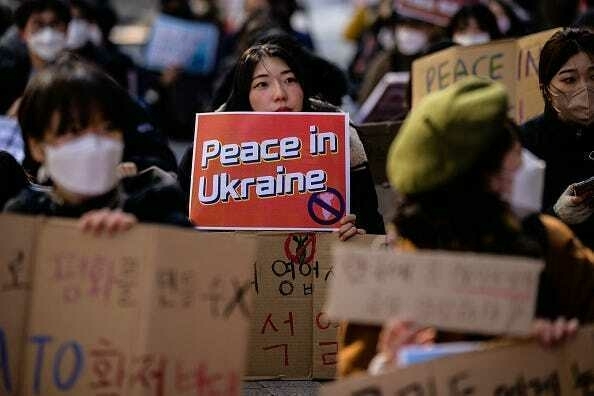
Hong Saewoong, 81, a journalist living in Seoul, told The Counteroffensive he does not agree with Zelenskyy’s approach to exchange the pair, as the decision should be left to the soldiers.
“Explain to them the options about where they could go,” Hong said, “and let them decide.”
In 2024, North Korea deployed about 11,000 troops to Russia’s Kursk region after Kim Jong-un and President Vladimir Putin agreed on a mutual defense pact to defy the so-called U.S.-led “Western hegemony.” North Korea has not yet publicly acknowledged sending troops to Ukraine.
North Korean troops have been helping their ally regain the Russian Kursk territory seized by Ukrainian forces in a surprise attack last August. Their involvement has come at a high cost. South Korean officials claim that about 300 North Koreans have been killed in battle and 2,700 wounded.
What S. Korea has done for Ukraine so far
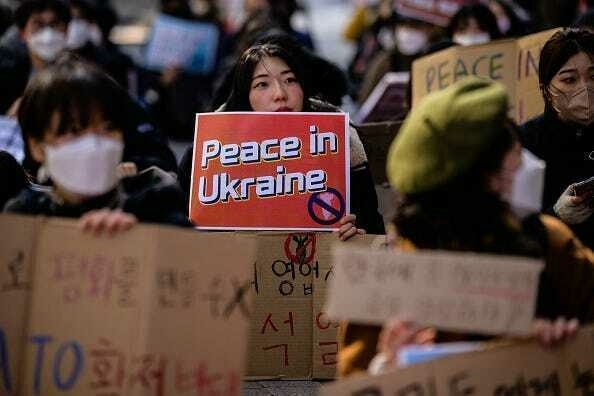
South Korea, which has a longstanding policy of not providing weapons to countries at war, has limited its support to Ukraine.
Yet in 2023, South Korea indirectly supplied about 500,000 rounds of artillery shells to Ukraine via the United States, positioning Seoul as a greater provider of artillery ammunition to Kyiv than all European countries combined. Seoul has also given Kyiv demining vehicles, body armor, and other non-lethal aid since February 2022.
Sending direct aid to Ukraine is seen among South Koreans as “unnecessarily provocative,” said Peter Ward, a research fellow at the Sejong Institute focused on North Korea.
In November last year, Russian Deputy Foreign Minister Andrey Rudenko told Russia’s TASS news agency that the relationship between Russia and South Korea would be “completely destroyed” if Seoul were to directly supply arms to Ukraine.
“One can provide aid indirectly anyway, so why does one need to provide it directly? And when one does provide it directly, how will Russia respond?” Wang said.
Chun said that even though Seoul has been providing Kyiv with non-lethal military assistance throughout the war, the government still worries and aims to protect its relationship with Russia, as it has “huge investments” in the country.
Before the full-scale invasion, some of South Korea's largest companies, including Hyundai, LG Electronics, and Samsung, had operations in Russia. They are now reportedly monitoring the situation closely and assessing the possibility of resuming business in Russia.
Chun added another reason for the lack of a harsher policy in Seoul: North Korea’s involvement in the conflict does not directly affect South Korea’s security interests.
“Unless the North Koreans were to attack us, sink one of our ships, or fire some artillery into us, a missile test no longer garners that much interest for the Korean people,” Chun said.
A survey conducted in November by Gallup Korea revealed that 82 percent of South Koreans oppose sending weapons and military equipment to Ukraine despite North Korea’s involvement in the conflict.
Last year, as then-President Yoon Suk Yeol received a Ukrainian delegation, protesters gathered in front of his office, asking their government not to send arms to Ukraine.
But there are other ways to collaborate. The South Korean government has begun discussing cooperation opportunities between Kyiv and Seoul over the next decade, said Roman Hryhoryshyn, the chairman of the Ukrainian-Korean Business Council.
At the moment, the cooperation between the two nations is low, but it has the potential to be “very high,” Hryhoryshyn said. “Korean companies are coming, events are taking place, and information is being exchanged regularly.”
What’s next for South Korea in this conflict
South Korea’s main antagonist is also developing deep friendships. Chun, the retired general, believes North Korea's and Russia’s cooperation will persist even after the war ends.
“No matter how deep you try to push your head into the sand, this problem is not going to go [away]... even if there is a ceasefire or end of the conflict in Ukraine,” Chun said. “I see this relationship developing and increasing.”
The two North Korean prisoners who are currently awaiting their fate have been key to opening the eyes of young South Korean men who can relate to the two 20-year-old defectors.
“[South Korean youth are] realizing that their problem[s] now, which is my [cell phone] battery is at 5 percent, ain't that big of a problem compared to those two kids [the North Korean POWs],” Chun said.
Kwon Jang-Ho contributed to this reporting in Seoul.
NEWS OF THE DAY:
Good morning to readers; Kyiv remains in Ukrainian hands.
PUTIN OPEN TO DIRECT ZELENSKYY TALKS: As pressure mounts from the possible American abandonment of peace talks, Putin has stated that Russia is ready for bilateral talks with Ukraine, CNN reported. It is the first time in recent years in which Putin has signaled his desire for direct participation in negotiations.
After the supposed ‘Easter truce’ by Putin, which was violated nearly 3,000 times by Russia, Zelenskyy called out Russia for continuing attacks on civilian infrastructure.
The U.S., European and Ukrainian officials are also planning to meet this week in London to discuss the Washington peace framework, which involves Ukraine being kept out of NATO and the potential US recognition of annexed Crimea as Russian territory.
UKRAINE TO LAUNCH DEFENSE SATELLITES: Starting in 2026, Ukraine plans to co-develop defense-oriented satellites with international partners as part of a 10-year roadmap by its Ministry of Defense. The goal is to establish a real-time satellite constellation by 2035.
Developing its own satellites is crucial for Ukraine’s national security, as it ensures independent access to real-time intelligence, especially vital after the pauses in the US intel sharing exposed the risks of reliance solely on foreign support.
KREMLIN’S PLAN TO BUY TRUMP’S SUPPORT: As Moscow prepares for possible negotiations with Washington, Russia is seeking more than just a ceasefire – it aims to reshape the global order.
“We need to milk Trump as much as possible, dangling the possibility of a ceasefire like a carrot before him,” one Russian source said.
To do so, it’s devising a strategy to draw Donald Trump into a sweeping geopolitical deal that would recognize its dominance over Ukraine and parts of Eastern Europe, according to The Moscow Times.
Moscow is reportedly crafting a package of proposals that align with Trump’s personal brand and political ambitions. It ranges from rare earth deals that align with Trump’s “America First” economic agenda and diplomatic leverage in Iran and North Korea to potential real estate projects like Trump Tower in Moscow.
CAT OF CONFLICT:
Today’s cat of conflict is Puha, who belongs to Veronika’s friend. Puha was moving around the globe fleeing the war with its family.
Stay safe out there,
Best,
Veronika

